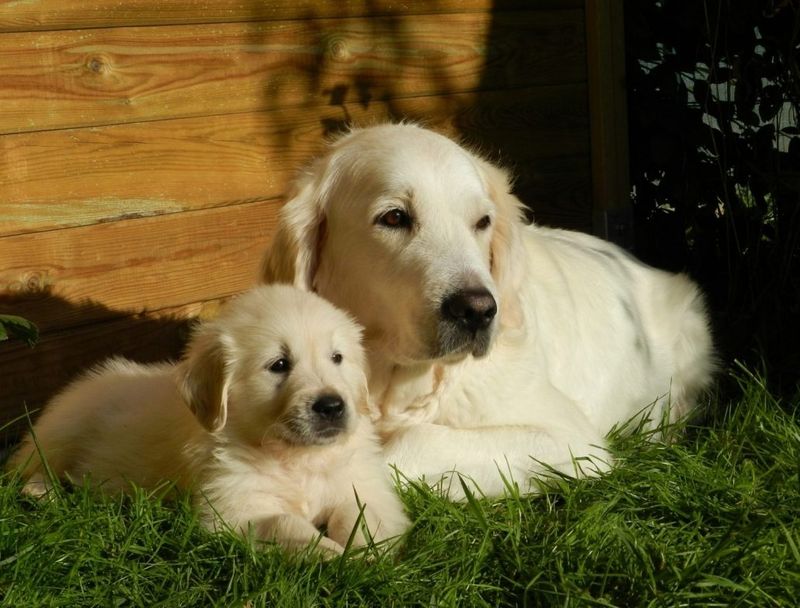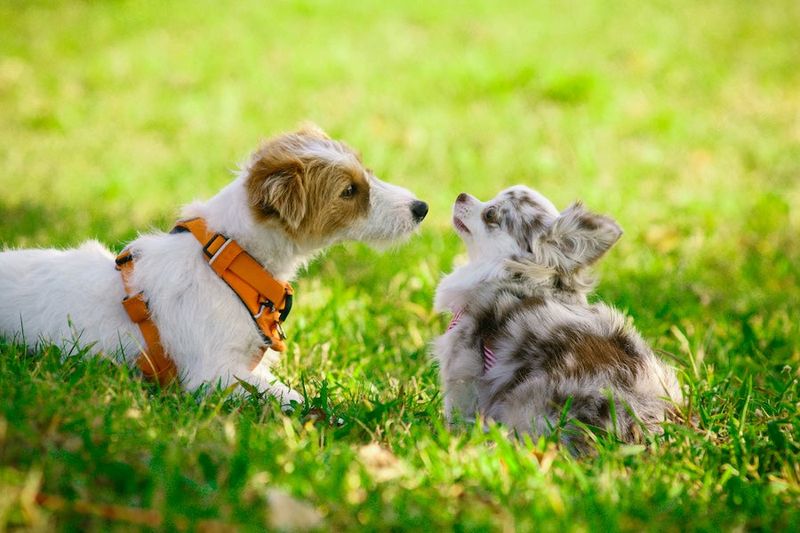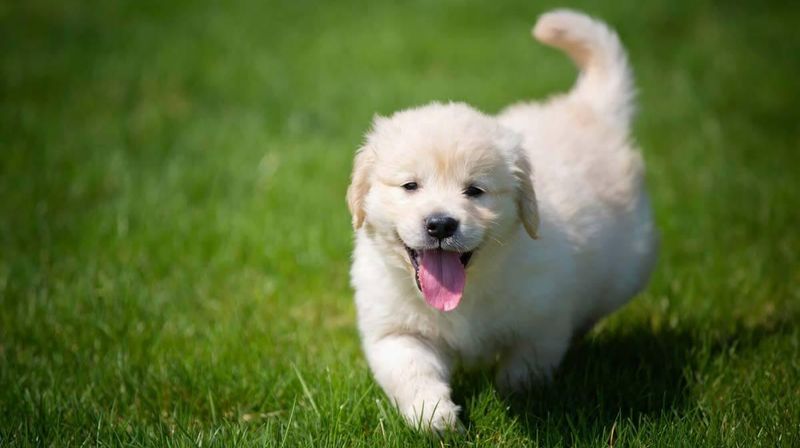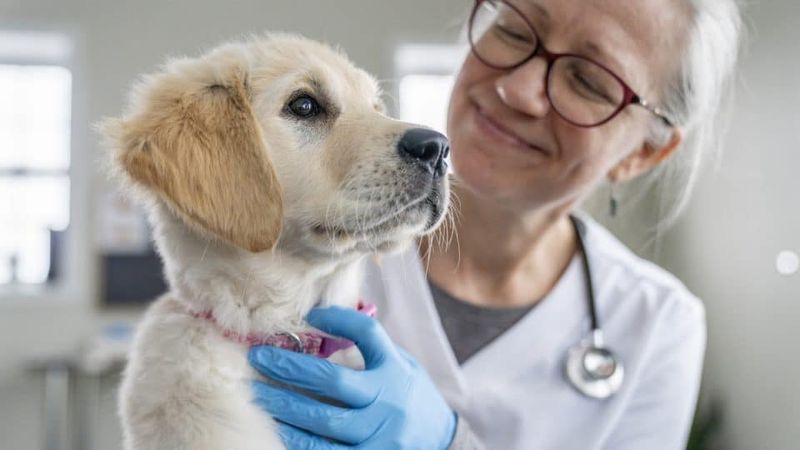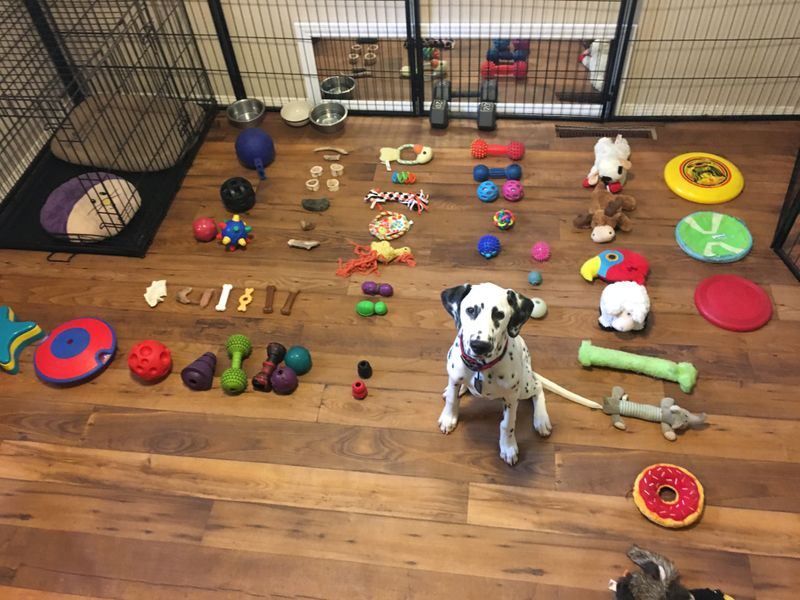Exploring the behavioral differences between puppies and adult dogs can reveal fascinating insights into their development and personalities. Understanding these differences can help pet owners make informed decisions about training, care, and companionship. This article delves into nine key differences that highlight how puppies and adult dogs interact with their world.
Playfulness
Puppies are bundles of energy, often seen bouncing around with uncontainable excitement. This vibrant playfulness is essential for their development, helping them to learn boundaries and social skills with other animals and humans.
In contrast, adult dogs display a more subdued excitement. Their play might be less frenetic but is often more purposeful. They enjoy games that challenge their intelligence, such as fetching or solving puzzles.
While puppies need constant stimulation and variety, adults often cherish routine and the occasional burst of playfulness to break the monotony.
Training Responsiveness
Training a puppy can be both a joyful and challenging experience. Puppies are eager to learn but can easily be distracted by their surroundings. It’s important to be patient and consistent, turning training sessions into games to keep their interest.
Adult dogs, however, often show increased focus and responsiveness to training, especially if they have been socialized early on. They tend to understand commands faster and with more consistency.
While it may take longer to instill new habits, adult dogs benefit from a lifetime of experience in understanding human cues.
Social Interaction
Puppies approach social interactions with wide-eyed curiosity, eager to meet everyone and everything. This is a crucial time for socialization, as experiences during this stage can shape their future behavior.
Adult dogs, on the other hand, are typically more discerning in their social circles. They have established relationships and often prefer familiarity over novelty. Many adult dogs enjoy the company of humans more than that of other dogs.
Understanding these social preferences helps create a harmonious environment, fostering positive interactions with both puppies and adult dogs.
Sleep Patterns
Puppies require a lot of sleep, often napping throughout the day to recharge their boundless energy. These frequent rest periods are vital for their growth and development.
Adult dogs, however, tend to have more predictable sleep patterns. They might enjoy a long nap after a walk or meal and usually sleep through the night without interruption.
Recognizing these differing sleep needs ensures that both puppies and adults are well-rested, contributing to their overall well-being and happiness.
Dietary Needs
Puppies have unique dietary needs, requiring food rich in nutrients to support their rapid growth and development. Special puppy formulas are designed to provide the essential vitamins and minerals they need.
Adult dogs, conversely, need a balanced diet tailored to maintain their health and energy levels. Their nutritional requirements can vary based on size, breed, and activity level.
Understanding these differences helps pet owners choose the right diet for their dogs, ensuring they receive the proper nutrition at every life stage.
Teething and Chewing Habits
Teething is a significant phase for puppies, leading to an insatiable urge to chew on everything in sight. This behavior helps soothe their gums and is a natural part of growing up.
Adult dogs continue to enjoy chewing, although the reasons shift to maintaining dental health and relieving stress. They often prefer sturdier toys and bones.
Providing appropriate outlets for this behavior is crucial for both puppies and adults, protecting household items and promoting healthy teeth and gums.
Energy Levels
Puppies are known for their seemingly endless energy, often described as little whirlwinds darting around the house. This energy requires frequent play and exercise to manage and channel appropriately.
Adult dogs, while still active, generally exhibit more balanced energy levels. They enjoy exercise but also appreciate downtime, taking life at a more leisurely pace.
Recognizing these differences in energy helps in planning activities that suit both puppies and adult dogs, ensuring they remain fit and happy.
Health Monitoring
Regular health monitoring is crucial for both puppies and adults, though their needs differ significantly. Puppies require frequent check-ups to track growth and receive vaccinations.
Adult dogs benefit from periodic health screenings to catch potential issues early and maintain their quality of life.
Being proactive in health care ensures that both puppies and adult dogs thrive, preventing problems before they escalate and providing peace of mind to pet owners.
Cognitive Development
Cognitive development in puppies is a whirlwind of discovery. They are learning about the world, testing boundaries, and understanding cause and effect. Toys and interactive play are vital in this learning process.
Adult dogs, however, benefit from mental stimulation that challenges their problem-solving abilities. Puzzles and training exercises keep their minds sharp and engaged.
Encouraging cognitive development at every stage helps puppies and adults become well-rounded dogs, capable of adapting to new situations and learning throughout their lives.


